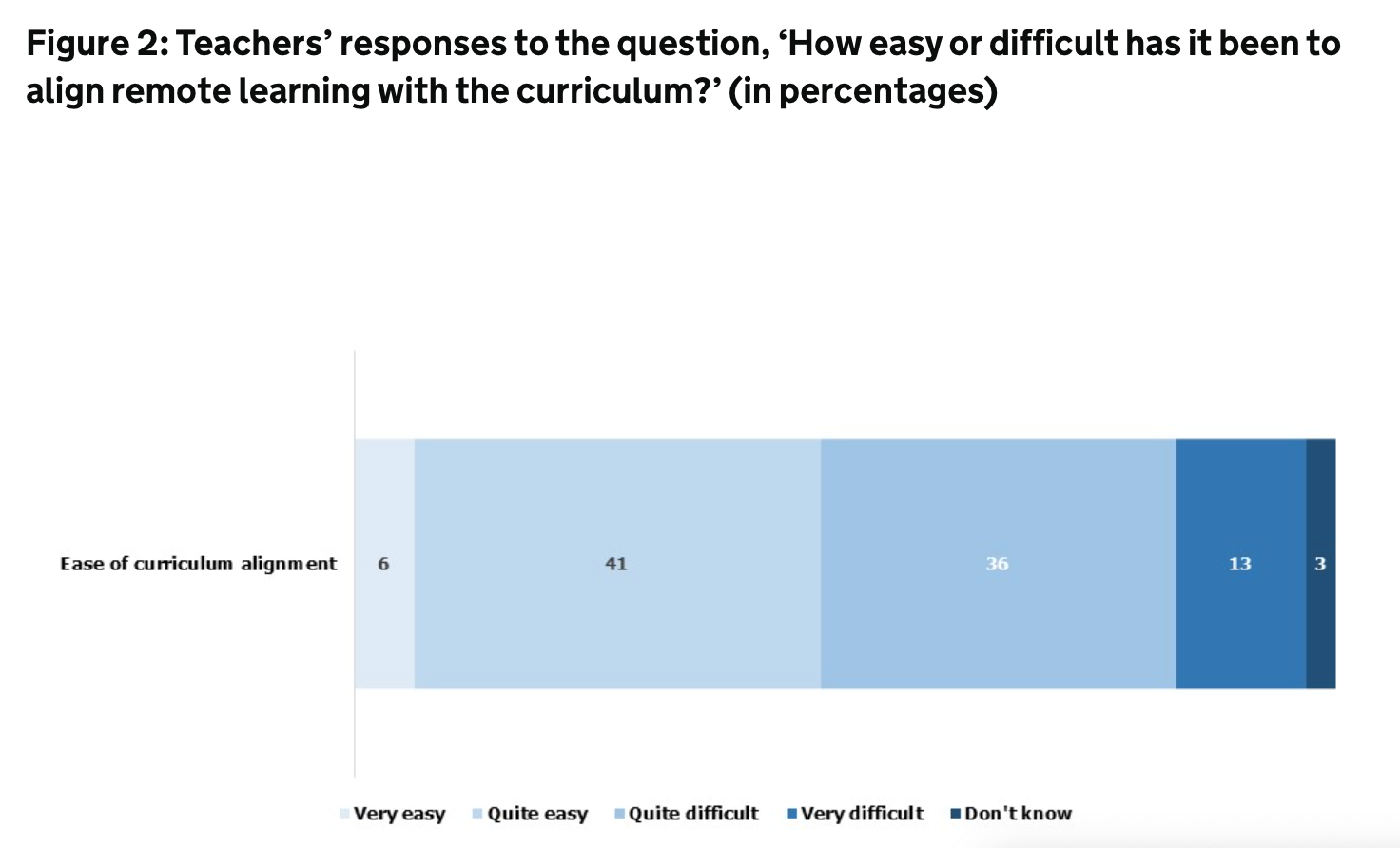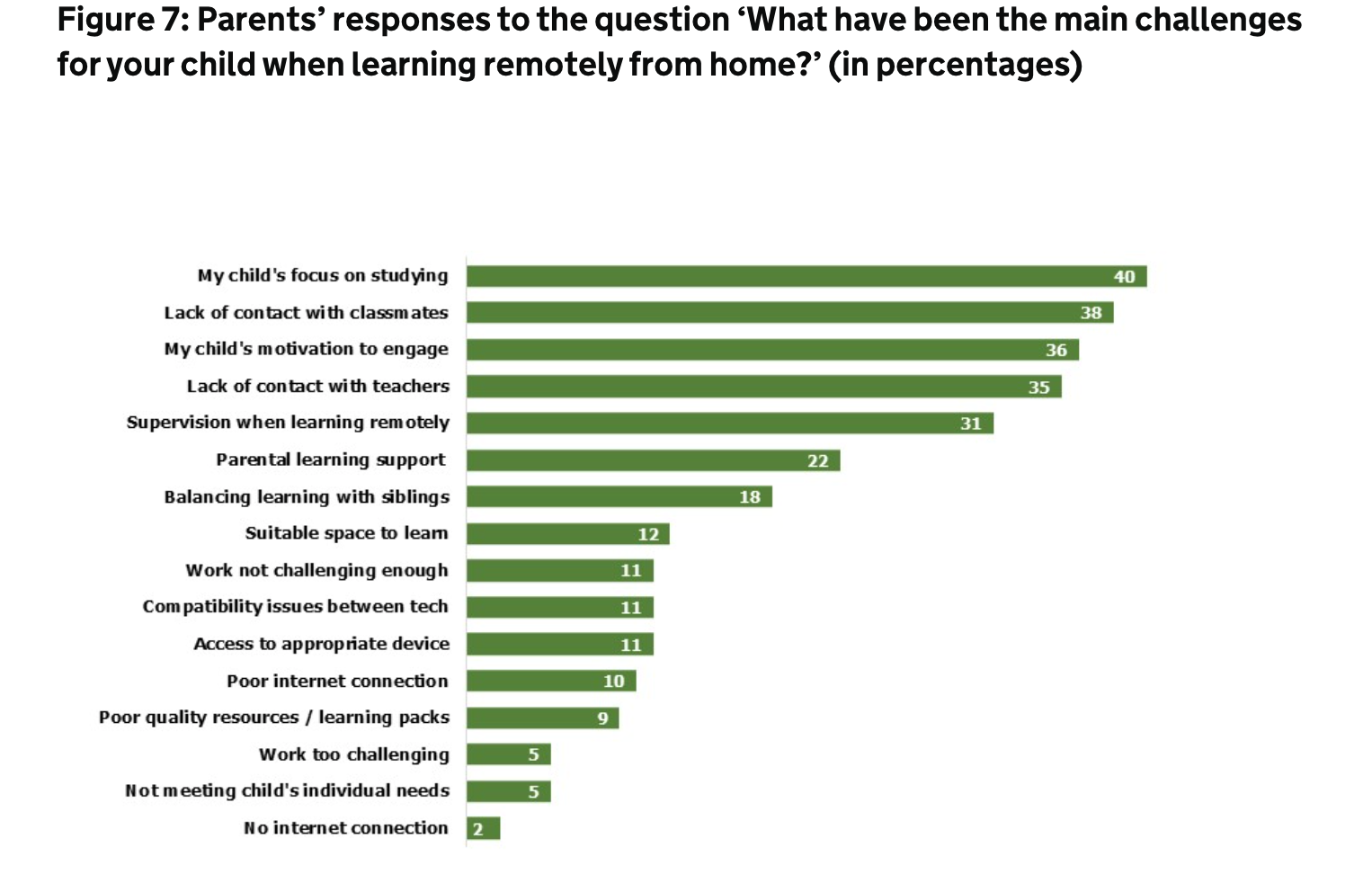
6 problems with remote learning, according to Ofsted

Ofsted has set out the challenges it believes schools face in providing remote learning to pupils during the Covid crisis.
The inspectorate has published a new report today detailing the findings of its research into remote education.
Here are six key challenges schools are having to overcome, according to Ofsted.
Ofsted: How to do remote learning ‘well’
First lockdown: DfE sets out best practice for remote learning
Covid: What schools need to know about the new legal duty to provide remote learning
1. Teachers had difficulty aligning the curriculum for remote learning
A survey of teachers found almost half had difficulty aligning remote learning with the school’s curriculum.
The responses, from just over 1,000 teachers, showed that 36 per cent said this had been “quite difficult” and 13 per cent said it had been “very difficult”.
The survey was carried out with YouGov last term, in November and December, before the most recent national lockdown.

2. Remote learning is more challenging for younger age groups
Ofsted’s research showed that, for early years and pupils in key stage one, some school leaders felt curriculum alignment had been “particularly difficult to achieve”.
Some leaders surveyed said that, because of the activity-based nature of many early primary experiences, remote education was a particular concern where resources for pupils were not available in pupils’ homes.
Several leaders also felt that pupils may experience learning loss in their social and communication development. A lack of socialisation with other children was a big concern for most of the primary leaders Ofsted spoke to.
3. Pupils can lack focus when working at home
The report published today from Ofsted also included findings from a survey of parents about remote education.
This showed pupils’ ability to focus on studying was the challenge highlighted most often by parents. A lack of contact with classmates and their child’s motivation to engage were also highlighted.
Chief inspector Amanda Spielman said: “While remote education will help to mitigate the learning lost when children are out of the classroom, it’s clear that pupils’ motivation and engagement remains an issue. This, along with the pressure remote learning places on teachers and parents, is proving a real barrier to children’s learning and development.
“Despite the challenges, I am impressed by the flexibility and innovation shown by teachers and leaders involved in our research.”

4. Having a device doesn’t guarantee access to remote learning
Ofsted said that, by the time it was carrying out its programme of autumn visits, most schools had overcome the lack of access to devices for pupils.
It said this was often because school leaders were highly concerned with the digital divide and went out of their way to ensure that all pupils could access their digital platform.
However, the report also warned that ensuring pupils had a device did not ensure access to remote education.
It warned that there were still problems including:
- Device appropriateness - mobile phones and tablets were generally considered a poorer tool for accessing and making use of content than a laptop.
- Poor quality or no internet connection.
- Sharing with siblings - live lessons in a timetabled approach can be more problematic because pupils may not always have access to a device at times that align with a predetermined timetable.
- Availability of parental support - particularly for primary-aged children.
5. Teaching remotely and in person at the same time poses a threat to teacher wellbeing
Delivering education to pupils both remotely and in person poses a threat to teacher wellbeing, according to the new Ofsted report.
The document, summarising the watchdog’s research into remote education, says that increasing workload is an ongoing challenge for schools in the pandemic.
It adds: “In particular, mixed delivery situations were seen as posing a threat to staff wellbeing. It was reported a number of times that staff were required to deliver content to students both in and outside of the classroom simultaneously.”
6. Remote learning has a bigger negative impact on pupils with SEND
The new research report warns that providing a remote education solution that is inclusive, and that pupils with special educational needs and disability (SEND) “can meaningfully engage with and benefit from” is a concern for both parents and schools.
Ofsted’s YouGov survey found that 59 per cent of parents of a pupil with SEND said that their child has been disengaged with remote learning, compared with 39 per cent of parents of children without additional needs.
Schools were also concerned that learning gaps would be greater for pupils with SEND. And school leaders told the watchdog of their concerns that the negative social and emotional impact of the disruption of remote learning would be more severe for some of these pupils.
However the inspectorate also found positives.
The majority of teachers have confidence in the quality of the remote learning they have been providing, according to a survey carried out for Ofsted.
Just over half of teachers polled also believed that what they were doing was sustainable for the future.
And school leaders were able to point to long-term benefits to the steps they have made in remote education during the crisis.
This includes being able to use video lessons for:
- When there are “subject specific teacher recruitment and retention issues”.
- Supporting anxious or excluded students off-site or in other on-site learning areas.
- For revision purposes or where pupils miss lessons owing to illness.
- Provision of teaching and learning during snow days.
You need a Tes subscription to read this article
Subscribe now to read this article and get other subscriber-only content:
- Unlimited access to all Tes magazine content
- Exclusive subscriber-only stories
- Award-winning email newsletters
- Unlimited access to all Tes magazine content
- Exclusive subscriber-only stories
- Award-winning email newsletters
You need a subscription to read this article
Subscribe now to read this article and get other subscriber-only content, including:
- Unlimited access to all Tes magazine content
- Exclusive subscriber-only stories
- Award-winning email newsletters
- Unlimited access to all Tes magazine content
- Exclusive subscriber-only stories
- Award-winning email newsletters